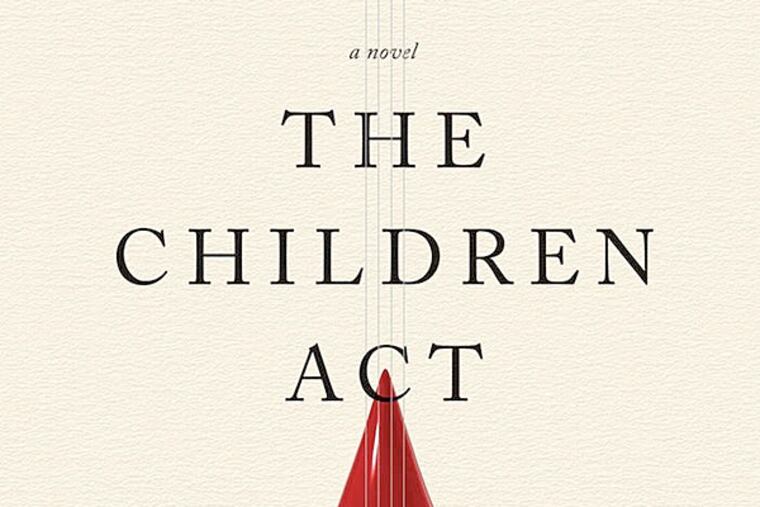When faith and freedom clash
The irony isn't lost on Fiona Maye, a London High Court judge and the central character in Ian McEwan's aching, slice-of-interior-life novel, The Children Act.

The Children Act
By Ian McEwan
Nan Talese/ Doubleday
$25, 240 pp.
nolead ends nolead begins
Reviewed by Steven Rea
The irony isn't lost on Fiona Maye, a London High Court judge and the central character in Ian McEwan's aching, slice-of-interior-life novel, The Children Act.
She presides over custody battles and high-profile divorces - "greedy husbands versus greedy wives, maneuvering like nations at the end of a war, grabbing from the ruins what spoils they could." But her own childless marriage, 30 years of intimate coexistence, has broken apart with the announcement from Jack, her husband, a professor of ancient history, that he has found a young woman with whom he wants to have sex.
He's not asking to leave, he is not in love. He longs only for one last fling. And Fiona wants none of it. It is too late for some kind of open arrangement. Jack packs a bag. Fiona changes the locks. Against this backdrop of muted dissolution, an urgent new case reaches Fiona's docket: Adam Henry, 17, has leukemia and needs transfusions. The prognosis, if the hospital gives him new blood, is good. But his parents are Jehovah's Witnesses. Their beliefs prohibit transfusions, and the son, a dreamy-eyed poet, shares their view. He is ready to die.
It is a difficult case, balancing issues of religious freedom against the responsibilities of the family court - a secular body, after all - to assure the well-being of minors, even minors nearing adulthood. Fiona decides, after testimony from the father, from a social worker, from a hematologist, to visit the boy herself, in the hospital. It is not a characteristic move on her part, and it is this encounter, and the subsequent contact between the boy and the judge, that are at the heart of McEwan's solemn, sinewy tale.
Written with the cool precision that McEwan has long been known for, The Children Act is not set against some roiling tableau, like Atonement, nor is it a microscopic, fussy work, like On Chesil Beach. It's at its best - and this is most of the time - when Fiona's intellect and emotions are at play (and, often, at odds). McEwan burrows into her psychology - her longings, regrets, sense of purpose, fragility.
Like the illustration of the drop of blood on the dust jacket, The Children Act is emblematic; it speaks to issues of faith and free thought, of relationships defined by life and by loss. But McEwan hardly ever loses focus of what matters most: this woman, with her rigorous mind, and with a heart that may, or may not, withstand the crushing pressure of love.
@Steven_Rea www.inquirer.com/onmovies